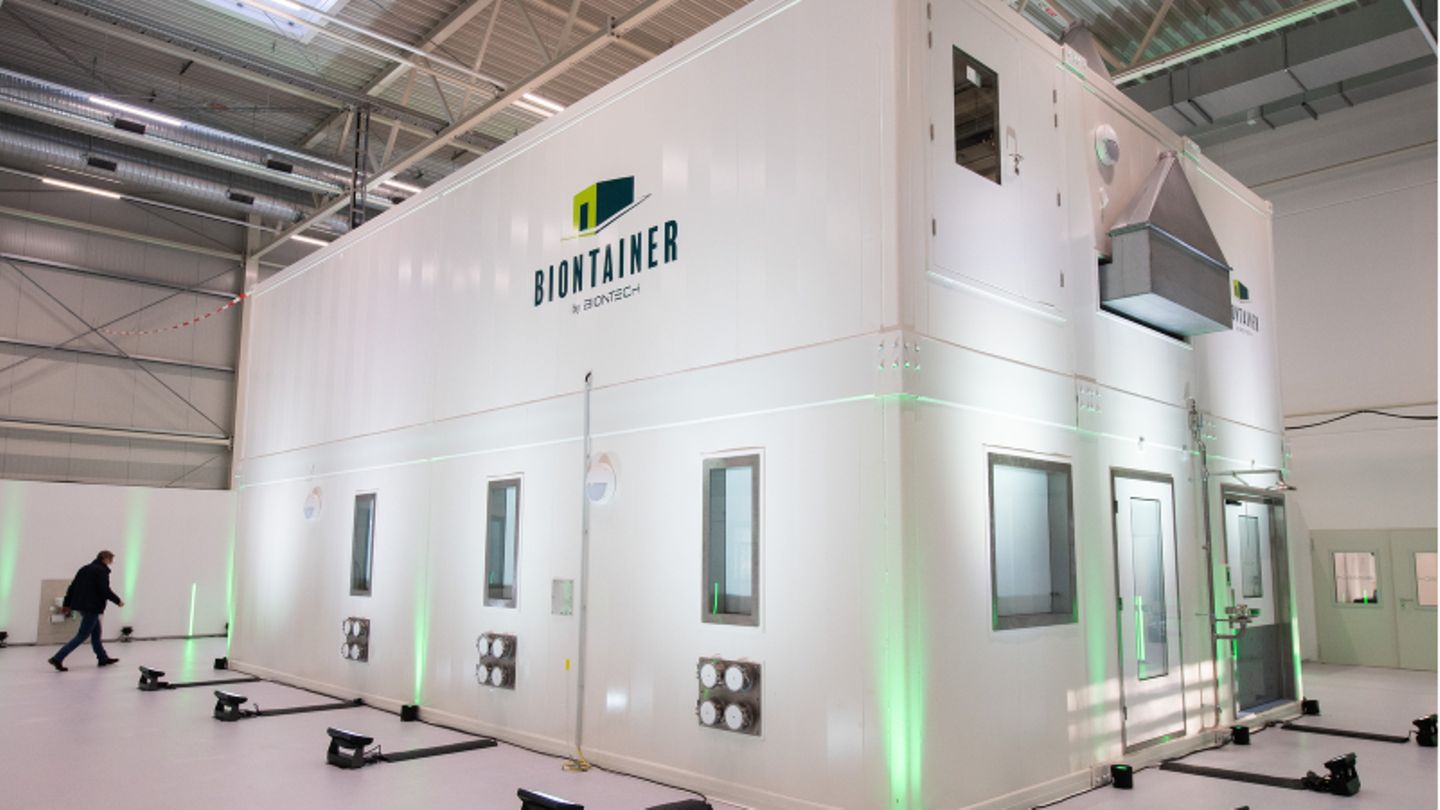The German pharmaceutical company Biontech plans to send small production plants to Africa. From 2023, up to 50 million doses of the corona vaccine are to be produced annually in the southern hemisphere.
For months, the manufacturers of corona vaccines have been criticized for the unequal distribution. While Western nations secured most of the vaccines, African countries often got nothing. In order to counteract this, the Mainz-based pharmaceutical company Biontech has been working on turnkey production plants for mRNA vaccines that are to go on the road in recent months. However, these should not focus solely on Corona.
“We are working with African partners to develop a sustainable production solution in Africa for Africa,” said Biontech boss Ugur Sahin when presenting the plans on Wednesday. “We have the know-how for mRNA production and have developed a modular production system based on containers and special software for this project.” According to the company, the Biontech/Pfizer Corona vaccine is just one of the possible products that can be manufactured within it. It is also about potential malaria or tuberculosis vaccines, for example.
Biontech plants are to produce 50 million doses
The prototype of the system is located in a hall on Biontech’s premises in Marburg, Hesse, where corona vaccines have been manufactured on a large scale for about a year. It is a kind of miniature copy of the Marburg plant and consists of two modules, each composed of six shipping containers. They are equipped with all the devices needed to produce mRNA – a messenger molecule – and the subsequent medical product. The maximum amount depends on the respective preparation. According to the company, up to 50 million doses of the corona vaccine could initially be produced per year.
The first system, prefabricated and tested in Marburg, should reach Africa in the second half of the year. Biontech does not reveal the costs for the development. Operating director Sierk Poetting gave the reason for the commitment: “We said we have to bring production to Africa. And also provide technology support so that our process, which we have established here in Marburg, can get there.” The fastest way is the container solution. The technology has to go to Africa, otherwise “we’ll be in the same place again in the next pandemic”.
Biontech project receives criticism
Biontech’s container plans are viewed critically in some places. Western vaccine production initiatives should strengthen Africa by boosting local capacity and creating more independence in the long term, Charles Gore, Executive Director of the United Nations Medicine Patent Pool (MPP), told the German Press Agency. Why Biontech wants to ship containers instead of building production facilities on site made him suspicious. Sending entire laboratories with their own staff from the West to Africa “would be a form of neocolonialism,” Gore said.
The head of the World Health Organization (WHO), Tedros Adhanom Ghebreyesus, also emphasized “the need for increased local production of vaccines (…), especially in low- and middle-income countries” during a visit to South Africa a few days ago.
One initiative that is already doing this is the biotechnology company Afrigen Biologics and Vaccines, which is developing Africa’s first proprietary and patent-free mRNA corona vaccine in Cape Town, South Africa. Supported by the WHO, this is intended to reduce the dependence of developing and emerging countries on the pharmaceutical industry. These countries should be able to license the vaccines and medicines developed there and produce them themselves. The aim is to make the distribution of vaccines cheaper, faster and fairer worldwide. The preparation should be ready for the market at the beginning of 2024.
Europe secures vaccine – Africa gets nothing
After bad experiences, the WHO no longer wants to rely on the goodwill of companies and governments in rich countries for the production of vaccines and other medicines. According to the African health authority Africa CDC, only around 11 percent of the population on the continent has been fully vaccinated against the corona virus – compared to more than 70 percent in Europe.
Vaccine bottlenecks from Western manufacturers are mainly responsible for the low rates in developing countries. Especially in the beginning, rich countries secured almost the entire production of the corona vaccines with contracts. Many poorer countries got nothing for months. To avoid this in the future, the African Union plans to produce around 60 percent of the vaccines needed on the continent itself by 2040.
Biontech will start production in 2023 at the earliest
It is still unclear to which country Biontech will bring its first mobile mRNA production facility. It is planned to deliver systems to Senegal, Rwanda and possibly South Africa. Company boss Sahin emphasized: “The project is being operated in close cooperation with the partners in the respective region, who, among other things, are preparing the infrastructure on site and supporting us with the regulatory processes.” Local operations should initially be ensured with our own production specialists, “while we train local specialists in order to hand over production to our African partners in the long term”.
But it will still be a while before the first vaccine leaves one of the container plants in Africa. Biontech assumes that production can start twelve months after the modules have been delivered to the target country. The vaccines produced there are then destined for domestic use and for export to other African Union countries at a charitable price.
Source: Stern




